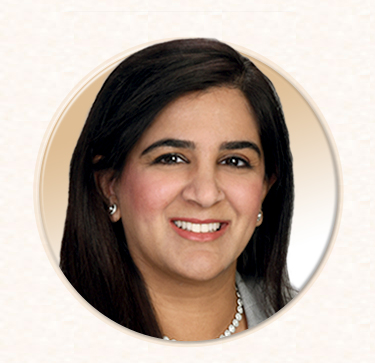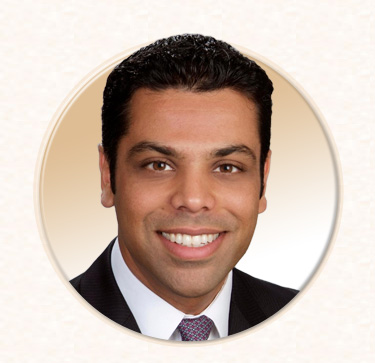Laparoscopic Surgery

Laparoscopy is a minimally invasive surgical procedure used to diagnose and treat problems of the genital and pelvic areas. During this procedure, an endoscope (tube) with a camera on the end is inserted through a tiny incision to allow your doctor to closely examine the organs of the area. Surgical instruments can be inserted through additional incisions to treat any identified problems.
Technological advances have brought computers and laparoscopic instruments to the forefront of surgical approaches. This provides patients with a minimally invasive technique that can be utilized in a wide range of procedures.
A laparoscopic procedure may be performed for a number of reasons, including to:
- Perform a biops
- Examine and possibly remove any growths (such as tumors)
- Diagnose and treat conditions such as endometriosis, ectopic pregnancy or pelvic inflammatory disease
- Perform endometrial ablation, which treats heavy menstrual periods without requiring a hysterectomy
- Remove fibroids (myomectomy)
- Check for metastasis (spreading) of cancer from other areas
- Perform a tubal ligation
- Remove organs such as the uterus (hysterectomy), one or both ovaries (oophorectomy) and/or the fallopian tubes (salpingectomy)
- Determine the cause of pelvic pain
- Determine the cause of infertility
Laparoscopy is performed under general anesthesia and generally takes 30 to 90 minutes, depending on what is done during the procedure. Laparoscopic surgery significantly shortens a patient's recovery time and results in fewer complications compared to traditional open surgery. Patients can usually go home shortly after the procedure and return to work and other normal activities the next day. Strenuous activity should be avoided for about a week. Laparoscopy is considered a safe procedure with little risk of complications.
Our Surgeons Specializing in Laparoscopic Surgery Procedures

- Allen Agapay, MD
- General Surgeon
- Peoria
- Learn More

- Aisha Akhtar, MD, FCPS
- Colon & Rectal Surgeon
- Glendale & Scottsdale
- Learn More

- Adrienne Forstner-Barthell, MD, FACS, FASCRS
- Colon & Rectal Surgeon
- Glendale
- Learn More

- Nathan Bodily, MD
- General Surgeon
- Gilbert & Mesa
- Learn More

- Ravia Bokhari, MD, FACS
- General Surgeon
- West Phoenix
- Learn More

- Michael Buckmire, MD, FACS, FASCRS
- Colon & Rectal Surgeon
- Mesa & Gilbert
- Learn More

- Ashley R. Casano, DO, FACS
- Colon & Rectal Surgeon
- Gilbert & Mesa
- Learn More

- Charles Castillo, MD, FACS
- General Surgeon
- Central Phoenix
- Learn More

- Susan Cortesi, MD, FACS
- General Surgeon
- Mesa & Scottsdale
- Learn More

- Lawrence Damore II, MD, FACS
- General Surgeon
- Mesa & Gilbert
- Learn More

- Jordan Glenn, DO, FACS
- General Surgeon
- Peoria
- Learn More

- Rita Hadley, MD, FACS, PhD
- General & Bariatric Surgeon
- Mesa
- Learn More

- Theodore Haley, MD, FACS
- General Surgeon
- Gilbert
- Learn More

- Richard Harding, MD, FACS
- General Surgeon
- Central Phoenix
- Learn More

- Sumeet Kadakia, MD, FACS
- General Surgeon
- Gilbert
- Learn More

- Jon King, MD, FACS
- General Surgeon
- West Phoenix
- Learn More

- Daveshni Kumar, MD, FACS
- General Surgeon
- Mesa & Scottsdale
- Learn More

- Tafadzwa Makarawo, MD, MRCS(Ed), FACS
- Colon & Rectal Surgeon
- Glendale
- Learn More

- Matthew Marini, MD, FACS
- General Surgeon
- Gilbert & Mesa
- Learn More

- Kevin Masur, MD, FACS
- General Surgeon
- Mesa & Scottsdale
- Learn More

- Richard Oh, MD, FACS
- General Surgeon
- Gilbert
- Learn More

- Sushil Pandey, MD, FACS, FASCRS
- Colon & Rectal Surgeon
- Sun City West
- Learn More

- Karthik Raghavan, MD, FACS
- General Surgeon
- Glendale
- Learn More

- Jennifer Reitz, MD, FACS
- General Surgeon
- Gilbert
- Learn More

- Greg Rula, MD, FACS
- General Surgeon
- Mesa
- Learn More

- Neeraj Singh, MD, FACS, FASCRS
- Colon & Rectal Surgeon
- Glendale, Phoenix & Scottsdale
- Learn More

- David Smith, MD, FACS
- General Surgeon
- West Phoenix
- Learn More

- Craig Szafranski, MD, FACS
- General Surgeon
- Mesa
- Learn More

